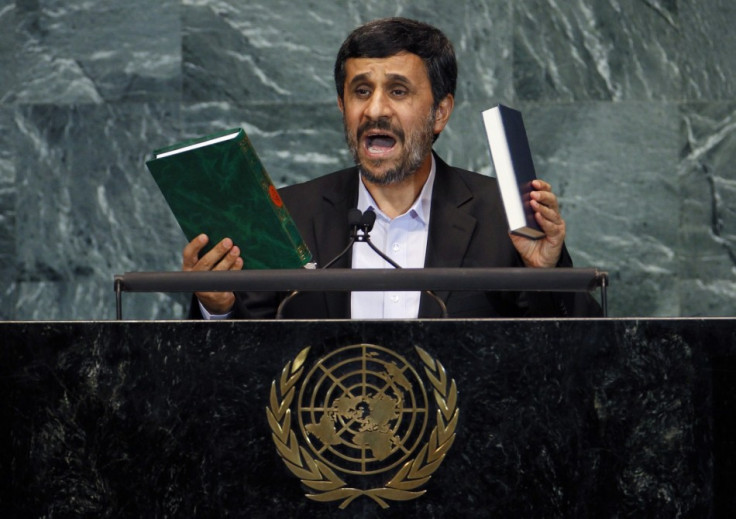Iran: Ahmadinejad's Censorship 'Would Have Banned Koran'

Iran's culture minister has admitted that book censorship was so tight under the previous government that they would have rejected even Islam's holy tract the Koran, according to an exclusive report by Iran expert and RFE/RL journalist Golnaz Esfandiari.
Ali Jannati told Iran's semi-official ILNA news agency that he had reviewed some of the rejected titles under the hard-line government of Mahmoud Ahmadinejad and come to the conclusion that in many cases censors picked put "irrelevant" issues.
Personal opinions and lack of expertise played a huge part in the censors' draconian attitude, according to Jannati, to the point that they would have banned the Koran, which Muslims believe is a direct revelation by God as it was verbally revealed from God to Muhammad through the angel Gabriel.
"If the Koran hadn't been sent by God and we had handed it to book censors, they wouldn't have issued permission to publish it and would have argued that some of the words in it are against public virtue," he said, according to a translation by RFE/RL.
However, Jannati said that book censorship will keep working in Iran. "How can we allow some problematic books to poison the society?" he asked.
Iranian writers and publishers, who are forced to submit their opus to the Culture Ministry before applying for publication, have long spoken out against the strict censorship rules, according to Esfandiari.
The journalist reported that censors often bar books for contents they deem as immoral, anti-Islamic or politically sensitive.
Radio Free Europe/Radio Liberty reported that that more than 200 Iranian writers, poets and translators called on Jannati to lift the censorship policy just a few days before his outstanding remarks.
Jannati was chosen by moderate cleric Hassan Rohani, who was elected president in June and has vowed to hand more freedom to Iranians.
© Copyright IBTimes 2025. All rights reserved.






















